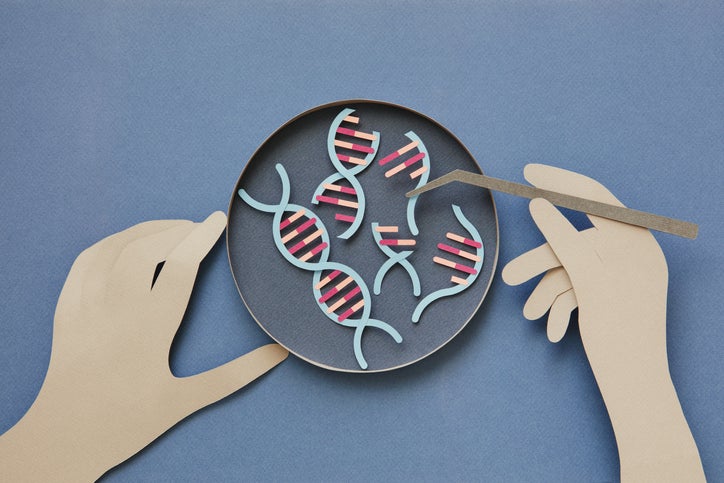
The Danish CRISPR biotech SNIPR BIOME has released the first glimpse at the safety profile for SNIPR001, a gene therapy intended to target antibiotic resistance.
Interim clinical results from a Phase I trial have demonstrated SNIPR001’s safety in healthy volunteers. Additionally, E.Coli was detected in a dose-dependent manner in feces, suggesting the therapy’s proof-of-principle targetin and removing the bacteria, including antibiotic-resistant strains. SNIPR plans to develop SNIPR001 for patients with hematological malignancies who are undergoing hematopoietic stem cell transplants. Additional studies are still needed to quantify the impact of reducing E.Coli infections in high-risk cancer patients.

Discover B2B Marketing That Performs
Combine business intelligence and editorial excellence to reach engaged professionals across 36 leading media platforms.
In January 2021, the US Food and Drug Administration (FDA) granted SNIPR001 a fast track designation. Its development is being supported by the nonprofit CARBX, which is tackling antibiotic resistance, and recently received UK government funding to develop new treatments.
Having previously raised $50m in Series A funding for in-human trials, SNIPR CEO and co-founder Dr Christian Grøndahl, told Pharmaceutical Technology that it is currently pursuing Series B fundraising to further explore CRISPR-based microbial gene therapy.
CRISPR or Clustered Regularly Interspaced Short Palindromic Repeats, provides the opportunity to target and modify specific DNA sequences. Several CRISPR-based gene therapies are in development, with one for sickle cell disease and transfusion-dependent beta thalassemia (TDT), being examined by the FDA for an approval. CRISPR offers a different approach in the ongoing struggle against antibiotic resistance. SNIPR001 consists of four CRISPR-edited phages targeting E.Coli.
The trial involved 36 healthy individuals dosed with three different dose levels of SNIPR001, to examine the safety profile, recovery and pharmacodynamics of the treatment. Subjects were dosed over seven days, and reportedly only experienced mild to moderate side effects with no withdrawals.

US Tariffs are shifting - will you react or anticipate?
Don’t let policy changes catch you off guard. Stay proactive with real-time data and expert analysis.
By GlobalDataThis group is most vulnerable when it comes to developing bloodstream infections caused by the translocation of bacteria like E coli from the gut. Chemotherapy used to treat blood cancer results in increased intestinal permeability, making E. coli a frequent cause of bloodstream infections that carries a 15-20% fatality rate.
Traditional treatments like fluroquinolone can be disruptive to the gut microbiome, and SNIPR is counting on SNIPR001 to be more precise.
Following these results, SNIPR has now set its sights on future studies to evaluate SNIPR001’s ability to target E.Coli in cancer patient. SNIPR also plans to take aim at several other antimicrobial resistance (AMR) pathogens like Pseudomonas, S. Aureus, Acinetobacter and C. difficile in difficult-to-treat infections in the future.
Grøndahl also highlighted SNIPR’s ongoing collaborations with Novo Nordisk and MD Anderson Cancer Center to further explore applications of its technology in cardio-metabolic and immune-oncology treatments, as well as an in-house program focusing on autoimmune diseases.


